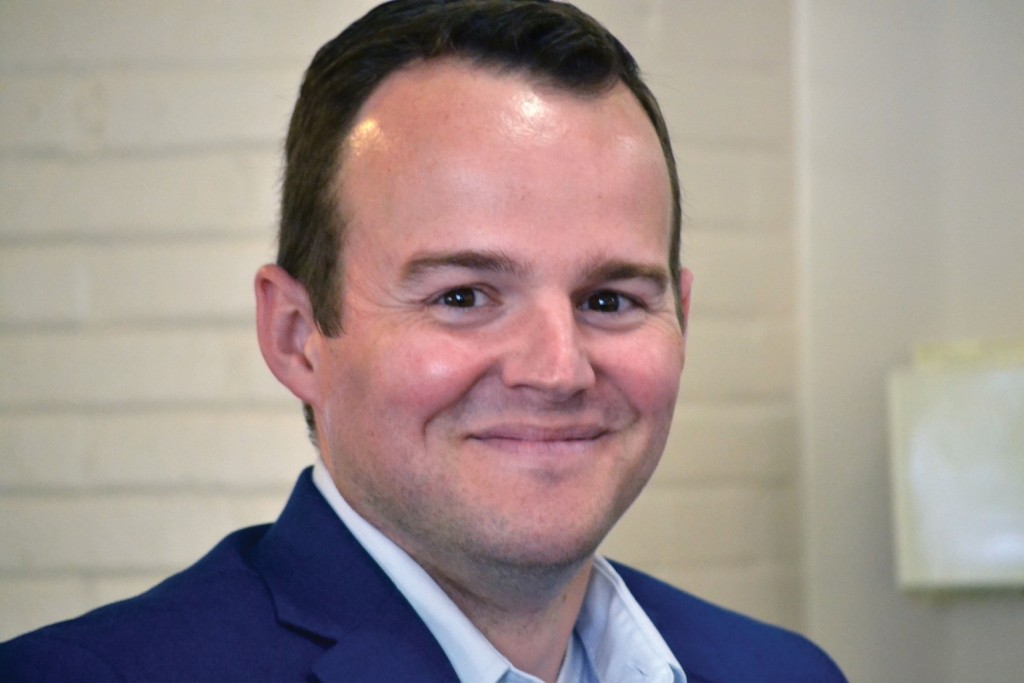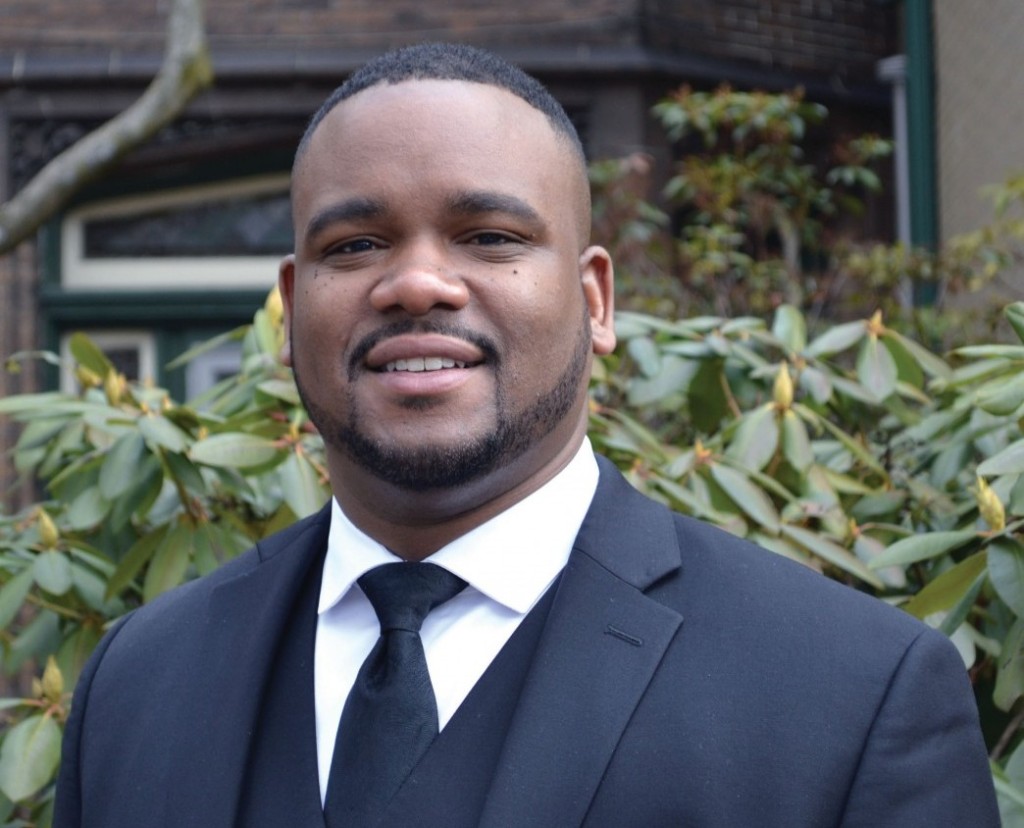You have free articles remaining this month.
Subscribe to the RP Witness for full access to new articles and the complete archives.
Only a week or so into his new role as associate pastor at the Lafayette, Ind., RPC, Keith Evans got a shock. “Welcome to the ‘Just Beneath,’” said Pastor Dave Long. By the Just Beneath, he meant the harder things a minister encounters that are just below the surface of what most people see in others’ lives. The struggles that are common to fallen man and are present in all areas of the church are often hidden, just below the surface. Keith expected to find such things as he ministered to members, adherents, and others, but the pervasiveness of the issues was shocking.
Dr. George Scipione, adjunct professor of biblical counseling at the Reformed Presbyterian Theological Seminary (RPTS) attempts to shock his students with the intensity and domination of sin that is so common in this fallen world. Shock in training helps to reduce the surprise of finding such things in a real context. Keith’s training with Dr. Scipione prepared him well, but it was still an adjustment.
You might say that Keith has had a long desire to serve Christ and His kingdom by utilizing psychology and counseling. So many areas of Keith’s life have had a trajectory toward his appointment last year by the Synod of the Reformed Presbyterian Church of North America to replace the retiring Dr. Scipione as the director of the Biblical Counseling Institute and to become the first professor of biblical counseling at RPTS.
Keith first interacted with the world of psychology in high school, where he grappled with a compelling non-Christian perspective of helping people deal with life’s issues. He was led to the world of biblical counseling after graduating with a major in psychology and a minor in Bible from Grove City College. He chose RPTS as his seminary, slowing down his studies so that he might be part of a new program in biblical counseling. It was here that Keith learned the need for pastors to incorporate aspects of counseling into their preaching and teaching.
The Lord sharpened and shaped Keith in seven years of congregational ministry, preparing him for the challenges of teaching others how to bring the Word of the Lord to bear in the lives of the people of the church. He developed a clear love for the flock and a growing understanding of the use of the means of grace in shepherding the sheep. He notes, “When I am engaging in counseling, I delight in the Lord’s blessing most clearly.”
A unique aspect of the counseling program at RPTS is the practical nature of the training. Seminaries often do well at training pastors to preach, with plenty of opportunities to do so under the careful tutelage of the professor. Most seminaries, though, fail to implement the same process to train pastors for the work of discipleship, which can also be called counseling. RPTS is one of the few Reformed seminaries offering such opportunities to its students.
At RPTS, students have the opportunity to participate in three counseling practicums. The first, Counseling Observation, allows the student to sit in the room while the professor counsels a real person with real issues. It is here that students often see, for the first time, the impact of pornography, adultery, depression, substance abuse, or anger within the body of Christ. The professor debriefs with the students who are then able to see the practical outworking of their theological training.
The second practicum course is Counseling Role Play. Here the student takes on the role of counselor and guides the professor through three or four hours of counseling over multiple weeks, replicating the more normal discipleship cycle. The final course is Supervised Counseling, where the student, working once again with real people struggling with real issues, counsels while the professor observes from the back of the room. The student and the professor meet later for feedback and encouragement. These courses, along with 90 hours of classroom training, form the foundation of a full-orbed understanding of biblical shepherding.
Systematic theology synthesizes all other fields in the usual seminary course of study. A robust understanding of man (Who is he? What is his problem? How do you fix him?) allows the pastor to bring biblical truth to bear in all areas of life. It is more than just knowing the right Scriptures to give to someone struggling with life-dominating sin.
Rev. Evans, joined by the entire faculty of the seminary, strongly encourages students to take advantage of these practicums. Through them, learners obtain concrete and practical training that permits a pastor to minister to the greatest benefit of the sheep.
Keith is completing a PhD in biblical counseling at Southern Baptist Theological Seminary (SBTS), one of only a few Reformed seminaries offering such coursework. Dr. Jonathan Pennington, head of the PhD program, calls Southern a Confessional school, which provides an excellent framework of study that dovetails well with Reformed Presbyterian thought. Biblical counseling today lacks an articulate understanding of man (anthropology). While there are many resources that address parts and pieces of the question, there is no single volume to address the whole question. SBTS is doing well in this area of study. Southern also has an excellent methodology for teaching counseling in an academic scenario; in essence, teaching the training of practitioners in the area of biblical counseling.
Simultaneously, Rev. Evans is working on a ThM in ethics. Southern uses a modular class structure totaling four classes per year. Each class has about 8,000 pages of reading and a major paper. He will not begin writing his PhD thesis for another year.
There are several unique challenges that Keith faces in his studies. As he embarks in ethics as a ThM concentration, he finds himself behind the curve, having never formally studied the field of ethics before. While Keith is enjoying the robust opportunity to read and engage with contemporary American thought, he finds himself studying a variety of brilliant atheistic authors who sharpen him as he is required to engage in graceful critiques of this worldview.
Jay Adams carved out a Christian methodology for biblical counseling. Since then, there have been many efforts in specialization, with in-depth works on marriage, depression, anxiety, and more. These clear hooks to an organized theology of biblical counseling are of great interest to Rev. Evans as he envisions the shaping and molding of pastors. After all, counseling (that is, discipleship) is the concrete and practical outworking of theology.
In a year of transition, Evans will teach the three practicums and handle most of the day-to-day counseling. Sharon Sampson, who graduated with an MTS (concentration in biblical counseling) from RPTS, counsels women at the counseling institute. Dr. Scipione is often traveling this year but still teaches the three classroom courses. Scipione and Evans spend time together each week, transitioning vision and workloads. This is a special time together and a great blessing as Dr. Scipione shares with Keith his many years of experience. Keith notes that it really was Dr. Scipione who helped to form him into a practitioner of counseling.
Keith’s vision is to train men and create a multiplication of effort so that the pastor is not seen as the only person who can counsel and disciple. Ruling elders need additional training and confidence in sharing in the shepherding of the sheep. The program at RPTS also concentrates on the training of women in counseling for the benefit of the church. A particular area of interest for Evans is pursuing those who do not think they need discipleship.
Keith is married to Melissa, and they have four daughters, Audrey (8), Evangeline (7), Aliana (5), and Aimee (2). They enjoy time together and working on projects at their home. They worship at Grace RPC in Gibsonia, Pa.
Evans was inaugurated on Nov. 2, at the North Hills RPC in Pittsburgh, Pa.
Several other changes have taken place this summer at RPTS. Dr. Barry York was inaugurated on Sept. 8. (See the RP Witness article from September for more on that transition and the work Dr. York is doing.) Dr. Jerry O’Neill, president emeritus, continues part-time, helping with fundraising and some academic administrative work.
Pastor William Baker IV (MDiv 2018) is serving part-time as community liaison, a new position at RPTS. Rev. Baker has been the pastor of the Mount Olive Baptist Church in Rankin, Pa., for the past seven years. Part of his responsibilities include the recruiting of urban students and establishing connections with local churches, something in which Dr. O’Neill has excelled during his tenure. Baker has an excellent relationship with many students at RPTS, and so he can often be found huddled together with his former classmates, planning student activities and discussing the real-life aspects of congregational ministry.
Pastor Baker notes that his training at RPTS is playing out in practical ways in his ministry, specifically in revitalizing Mount Olive and shaping its ministry. Church leaders are also growing in their understanding of the theological basis for an eldership versus the more traditional deacon-focused leadership found in many Baptist churches.
“The respect for the authority of Scripture merged with a hands-on, loving mentorship of scholars and pastors creates an education aimed at the shepherding and loving of God’s people,” remarks Baker. “It really encourages men to get theological dirt under the fingernails of the Lord’s shepherds.”
Having met at Oral Roberts University, Will and his wife, Denise, have been married for 13 years. They have three sons, Uriah (7), Noah (5), and William (3), which makes for a busy and active household bursting with love and energy.
Mark Sampson | chief administrative officer and director of institutional advancement at the Reformed Presbyterian Theological Seminary in Pittsburgh, Pa.

